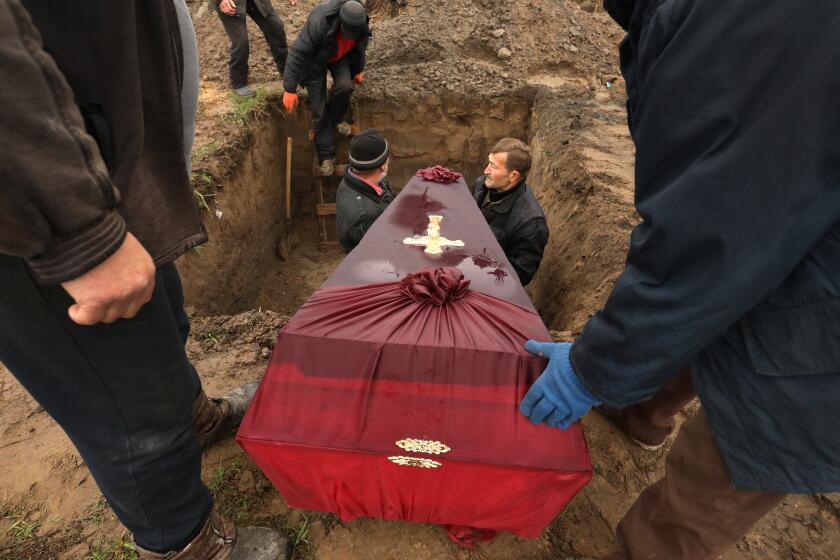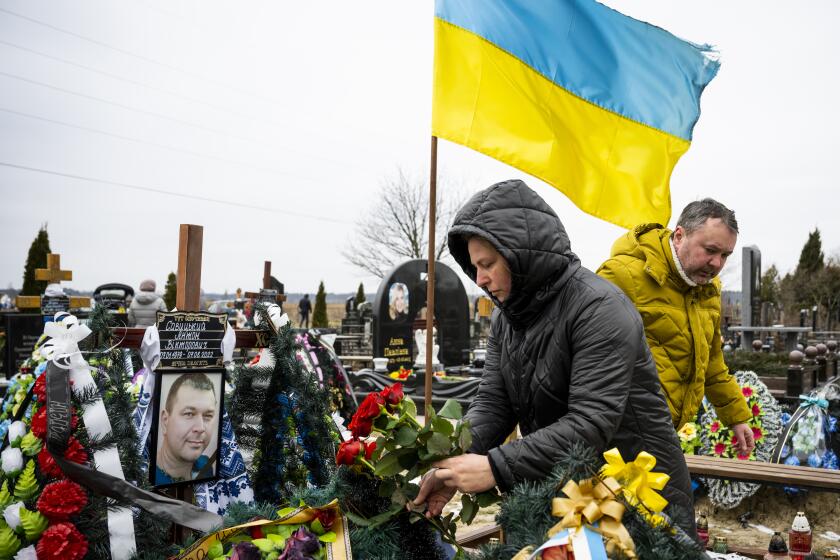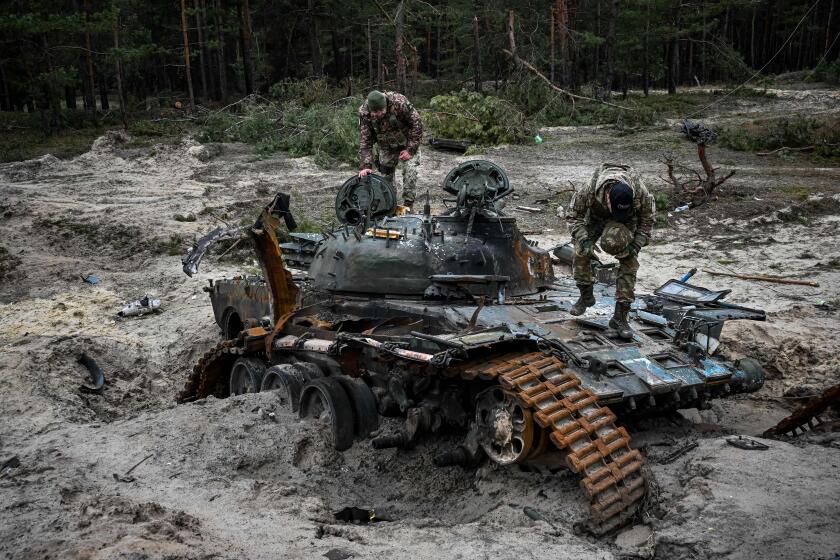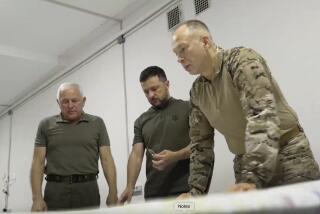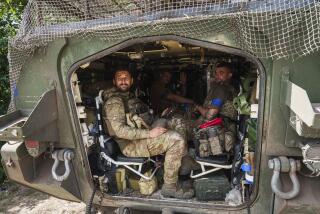Ukrainian court puts Orthodox priest under house arrest, alleging he condones Russia’s invasion
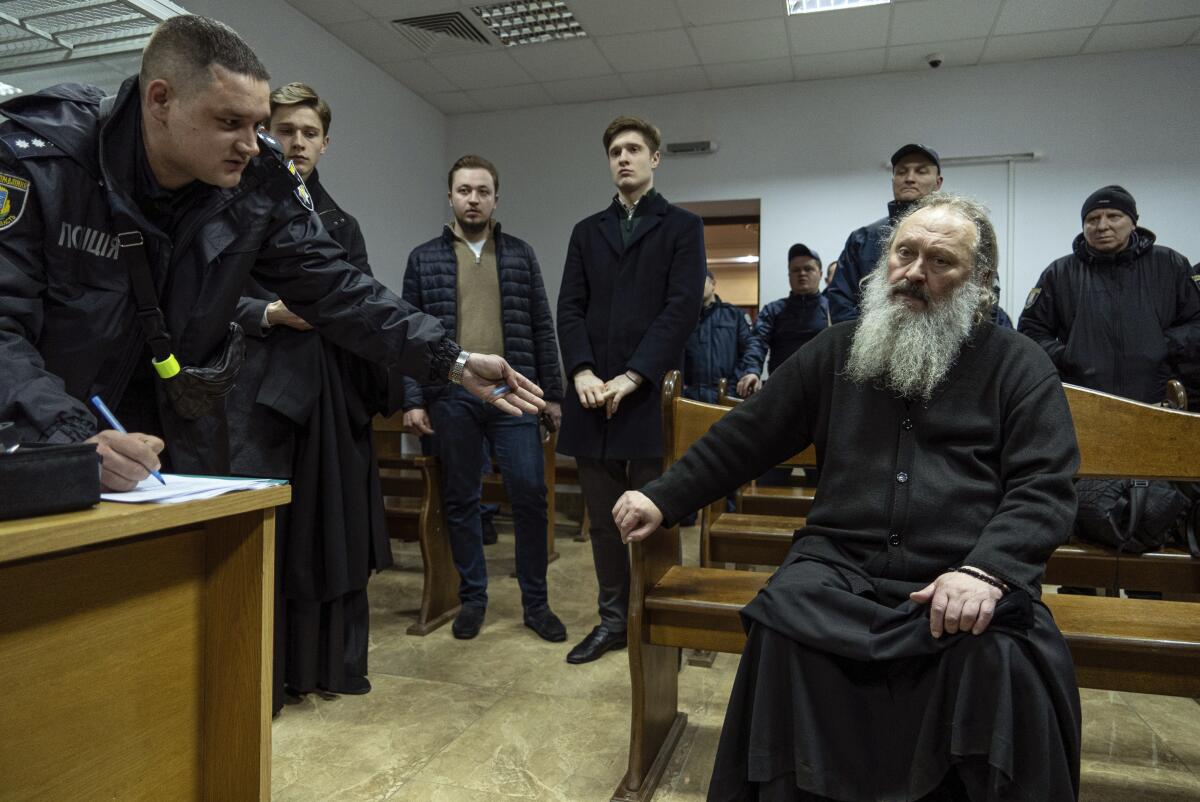
- Share via
KYIV, Ukraine — A Kyiv court ordered a leading priest to be put under house arrest Saturday after Ukraine’s top security agency said he was suspected of justifying Russian aggression, a criminal offense. It was the latest move in a bitter dispute over a famed Orthodox monastery.
Metropolitan Pavel is the abbot of the Kyiv-Pechersk Lavra monastery, Ukraine’s most revered Orthodox site. He has denied the charges and resisted the authorities’ order to vacate the complex.
In a court hearing earlier in the day, the metropolitan said the claim by the Security Service of Ukraine, known as the SBU, that he condoned Russia’s invasion was politically driven and that he had “never been on the side of aggression.”
After the court’s ruling, a monitoring bracelet was placed around his ankle, despite his objections that he has diabetes and should not wear it. The house arrest was to last two months.
“I am accepting this,” he said shortly before the bracelet was attached. “Christ was crucified on the cross, so why shouldn’t I accept this?”
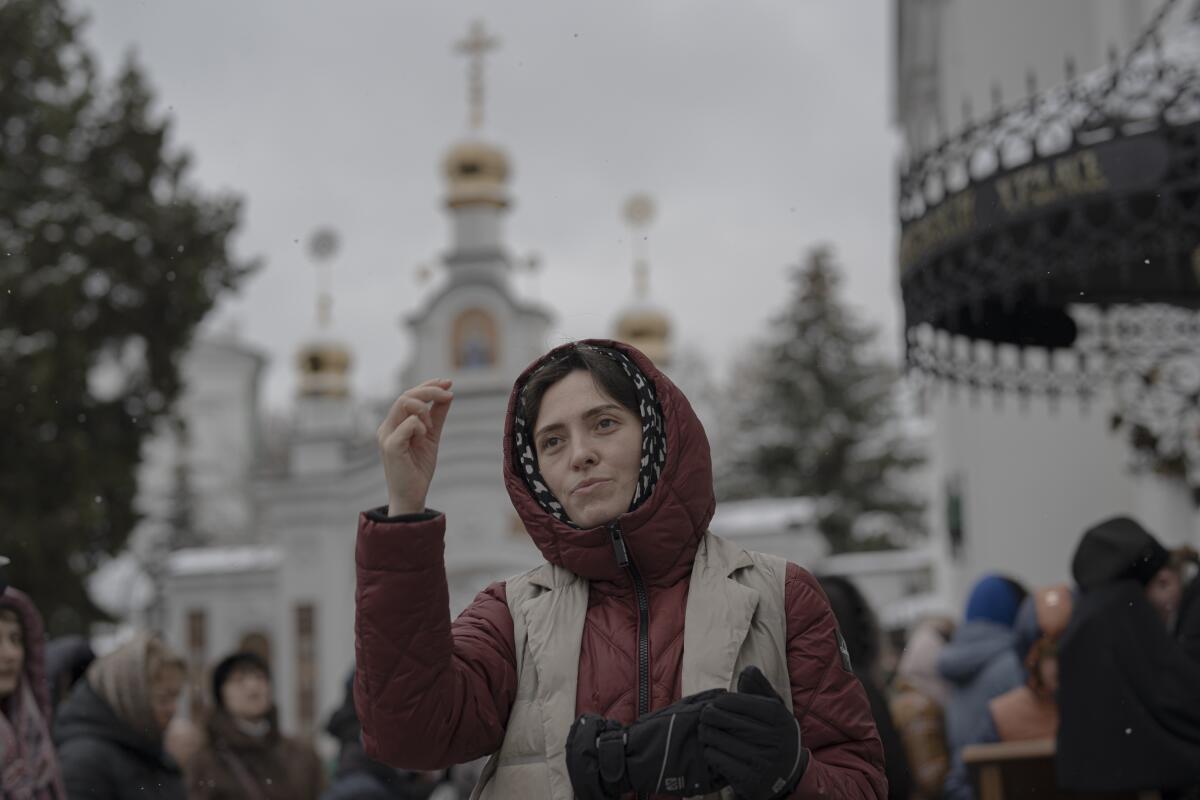
Earlier last week, he cursed Ukrainian President Volodymyr Zelensky, threatening him with damnation.
The monks in the monastery belong to the Ukrainian Orthodox Church, or UOC, which has been accused of having links to Russia. The dispute surrounding the property, also known as the Monastery of the Caves, is part of a wider religious conflict that has unfolded in parallel with the war.
Russian atrocities number in the tens of thousands, Ukraine says. The ICC wants to arrest Putin. But what are the prospects for justice?
The Ukrainian government has cracked down on the UOC over its historical ties to the Russian Orthodox Church, whose leader, Patriarch Kirill, has supported Russian President Vladimir Putin in the invasion of Ukraine.
The UOC has maintained that it’s loyal to Ukraine and has denounced the Russian war from the start. But Ukrainian security agencies say some in the church have kept close ties with Moscow. The agencies have raided numerous holy sites of the church and then posted photos of rubles, Russian passports and leaflets with messages from the Moscow patriarch as proof that some church officials have been loyal to Russia.
The government had ordered the monks to leave the compound by March 29. It claims they violated their lease by making alterations to the historic site and other technical infractions. The monks rejected the claim as a pretext.
Dozens of UOC supporters gathered outside the monastery Saturday, singing hymns in the rain. A smaller group of protesters also turned up, accusing the other side of sympathizing with Moscow.
“They wash the brains of people with Russian support, and they are very dangerous for Ukraine,” said Senia Kravchuk, a 38-year-old software developer from Kyiv. “They sing songs in support of Russia, and that’s horrible, here, in the center of Kyiv.”
Putin believes he can outlast the West, even as U.S., Europe show robust support, unity after a year of conflict
Third-year seminary student David, 21, disagreed. Dressed in a priest’s robes and with a Ukrainian flag draped around his shoulders, he insisted that the Lavra priests and residents were in no way pro-Russian. The state, he said, was trying to evict hundreds of people from Lavra without a court order.
“Look at me. I’m in priest’s clothes, with a Ukrainian flag and a cross around my neck. Could you say that I’m pro-Russian?” said David, who declined to give his last name because of the tensions surrounding the issue. “The priests are currently singing a Ukrainian hymn, and they’re being called pro-Russian. Can you believe it?”
In other news Saturday, Zelensky condemned the U.N. Security Council for allowing Russia to assume its presidency. The council’s 15 members each serve as president for a month, on a rotating basis.
Zelensky said Russian artillery had killed a 5-month-old boy in the town of Avdiivka on Friday, “one of hundreds of artillery attacks” each day, and added that Russia presiding over the Security Council “proves the complete bankruptcy of such institutions.”
Two civilians were reported killed in Russian shelling Saturday, one each in the Kherson and Kharkiv regions, Ukrainian authorities said.
Zelensky also said he spoke to French President Emmanuel Macron on Saturday to brief him on the battlefield situation and discuss defense cooperation.
While Ukraine is preparing for a counteroffensive this spring, Russian forces have kept pressing their effort to capture the city of Bakhmut. Fighting in that stronghold in Ukraine’s east has dragged on for eight months.
The Ukrainian military’s surrender hotline, dubbed ‘I Want to Live,’ is enticing some Russian soldiers to quit the battlefield as the war drags on.
Russian Defense Minister Sergei Shoigu said during a Saturday visit to the military headquarters overseeing the action in Ukraine that Russia’s defense industries have boosted production of ammunition “by several times.”
The U.K. Defense Ministry said in an analysis that the Russian offensive personally overseen by Gen. Valery Gerasimov, the chief of the General Staff of the Russian military, has fizzled.
“Gerasimov’s tenure has been characterized by an effort to launch a general winter offensive with the aim of extending Russian control over the whole of the Donbas region,” the British ministry said on Twitter. “Eighty days on, it is increasingly apparent that this project has failed.”
The ministry said that Russian forces in the Donbas have made only marginal gains “at the cost of tens of thousands of casualties.”
Russia was “largely squandering its temporary advantage in personnel” from a partial mobilization of 300,000 reservists, the U.K. analysis said.
More to Read
Sign up for Essential California
The most important California stories and recommendations in your inbox every morning.
You may occasionally receive promotional content from the Los Angeles Times.
